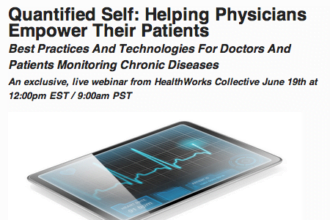Even before the Affordable Care Act had become law, its opponents cleverly dubbed it “Obamacare.” Their intentions were obvious: to capitalize on a substantial proportion of the public’s disapproval of our President and conjure up images of “socialized medicine” simultaneously. To some extent, the tactic has worked. It’s unclear that opposition to the law was generated by the intentional misnomer, but a substantial proportion of Americans–somewhere between 40 and 60 percent, depending on who’s asking–are opposed to the law.
Even before the Affordable Care Act had become law, its opponents cleverly dubbed it “Obamacare.” Their intentions were obvious: to capitalize on a substantial proportion of the public’s disapproval of our President and conjure up images of “socialized medicine” simultaneously. To some extent, the tactic has worked. It’s unclear that opposition to the law was generated by the intentional misnomer, but a substantial proportion of Americans–somewhere between 40 and 60 percent, depending on who’s asking–are opposed to the law. Of course, it’s debatable how many of them actually understand the intricacies of the law, as polls also show broad support for many of its key provisions. Heck, even Mitt Romney–who has pledged to repeal the law if elected–likes many parts of it. (Of course, he should, he signed essentially the same bill into law into Massachusetts while he was Governor.)
President Obama has not shied away from the law’s GOP-given nickname, either. In fact, during one of the recent Presidential debates, he admitted that he liked it. After all, it is giving him direct credit for one of, if not the single-most important policy achievements of his first term. America had tried and failed to enact health reform for nearly a century. Obama helped to realize the dream. He has every right to be proud of that. But, the name is still misleading.
I’ve written about many aspects of this before. For example, I’ve said that it’s not entirely accurate to give the President sole credit. The really difficult work happened in Congress. I’ve also said repeatedly that this is not socialized medicine, but rather a last-ditch effort by the federal government to use the power of competition in the private insurance market to help save the American health care system. I’ve discussed how the closest thing to socialized medicine that was even considered was simply a program modeled after Medicare. That program, the so-called “public option” was ultimately removed from the bill in order to secure its passage to the disappointment of many progressive members of Congress.
In short, none of the things that were being hinted at, suggested, or downright lied about by using the name “Obamacare” have ever been a threat to opponents, because they haven’t been real. Examples abound, but foremost among these are the notion of “death panels.” Sarah Palin and Betsy McCaughey dreamed that one up, and Paul Ryan’s still been talking about it. Folks, it’s simply not true. What has happened, is that young adults can stay on their parents’ insurance plans until age 26, prescription drug coverage and preventive care have been made more affordable for seniors, and individuals can no longer be denied coverage for pre-existing conditions. But that’s only what’s happened so far. There’s more to come.
By 2014, the health insurance exchanges will be operational, and you’ll be able to find quality coverage for yourself and your family at a competitive rate. The Medicaid program will expand in most states to provide coverage to low-income Americans. And, if neither of those options helps you, you’ll be able to purchase coverage through a federally-sponsored multi-state insurance plan. This isn’t the public option, but it’s close. It will still be private coverage, but it will be contracted for by the federal government. If you have insurance through your employer now, you can think of this as another similar option, with the government serving in the same role as your employer currently does. What does it mean for you? More plan choices. Potentially lower costs through competition. A plan endorsed by the federal government that isn’t looking to cut corners to make a profit. This, folks, is the real Obamacare, and you should remember that on November 6th.






_8-250x220.jpg)